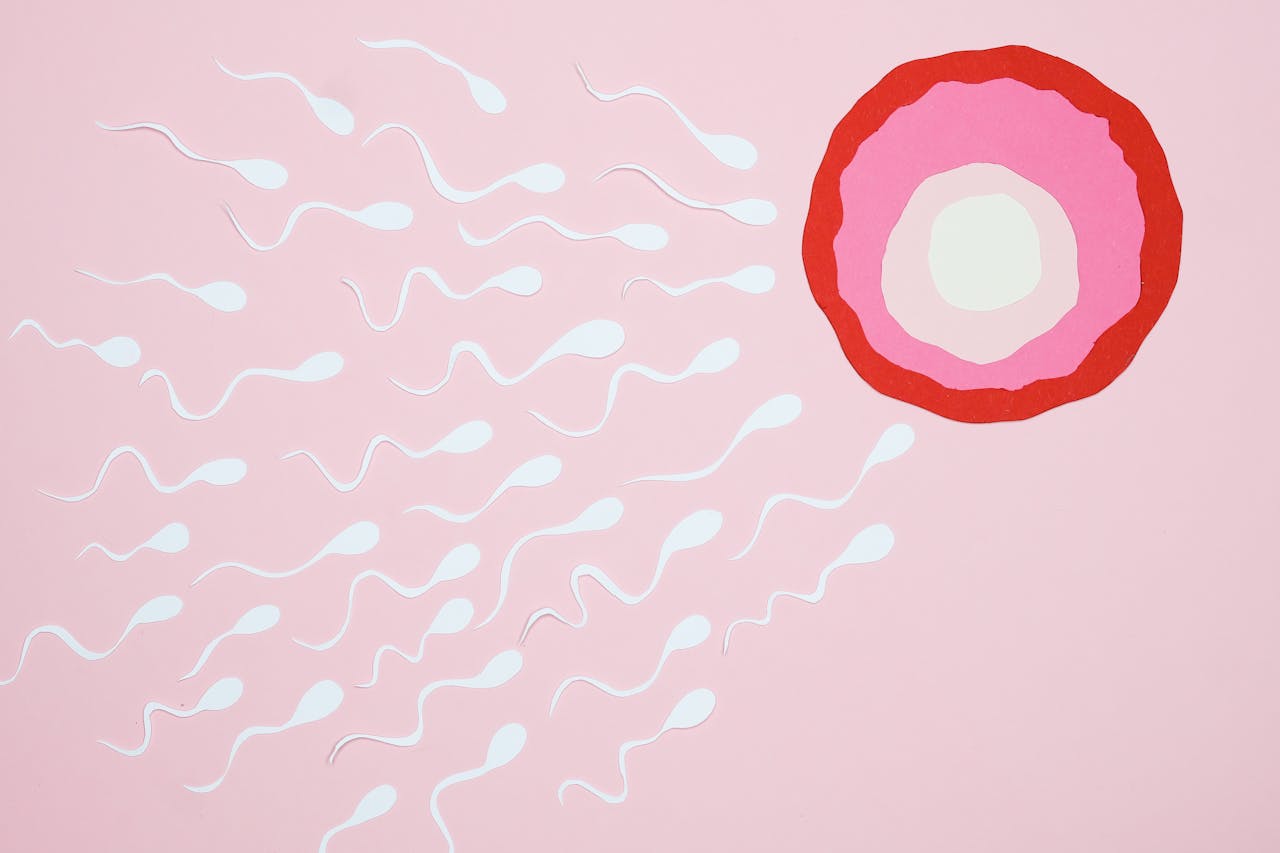Infertility is defined as the inability to conceive a child despite regular, unprotected sexual intercourse for at
least six months to one year. It can affect both men and women and may be caused by various factors related to
reproductive health, hormonal imbalances, lifestyle factors, or other medical conditions.
Cause-
-
Female factor-
Infertility in women may be due to ovulation disorders, blocked fallopian tubes, endometriosis, polycystic
ovarian syndrome, age-related decline in fertility, or other anatomical or hormonal issues.
-
Male factor-
Infertility in men may be caused by low sperm count, poor sperm motility, blocked sperm ducts, hormonal
imbalance, or genetic conditions affecting sperm production.
-
Combined factor-
In some cases, infertility may result from a combination of male and female factors or unexplained causes.
-
Hormones-
Hormones play a crucial role in regulating the reproductive system, and imbalances in hormone levels can
contribute to infertility in both men and women. Hormonal factors can affect various aspects of
reproductive function, including ovulation, sperm production, fertilization, implantation, and maintenance
of pregnancy. Here’s how hormones can be involved in causing infertility, explained in detail:
-
Female Hormonal cause of infertility-
-
Polycystic Ovary Syndrome (PCOS)-
It is a hormonal disorder characterized by irregular ovulation or lack of ovulation, often
associated with elevated levels of androgens (male hormones) and insulin resistance.
-
Hypothalamic dysfunction-
Dysfunction of the hypothalamus, a region of the brain that regulates hormone production,
can disrupt the release of gonadotropin-releasing hormone, leading to irregular or lack of
ovulation.
-
Thyroid Disorder-
Thyroid hormones play a role in regulating the menstrual cycle and ovulation. Thyroid
disorders such as hypothyroidism or hyperthyroidism can disrupt menstrual patterns and
affect fertility.
-
Premature ovarian insufficiency (POI)-
Also known as early menopause, it occurs when the ovaries stop functioning before the age
of 40, leading to irregular or absent ovulation and infertility.
-
Luteal phase defect-
After ovulation, the ovarian follicle transforms into a structure called a corpus luteum,
which produces progesterone to prepare the uterine lining for the implantation of a
fertilized egg. A luteal phase defect, characterized by inadequate progesterone production,
can result in a shortened or insufficient luteal phase, leading to difficulty conceiving or
maintaining pregnancy.
-
Endocrine disorders-
Disorders affecting the pituitary gland, thyroid gland, adrenal glands, or other endocrine
organs can disrupt the hormonal balance necessary for normal reproductive function, leading
to infertility.
-
Male Hormonal cause of infertility-
-
Low Testosterone (Hypogonadism)-
Testosterone is crucial for sperm production. Low levels can result from primary testicular
failure or secondary causes such as pituitary or hypothalamic dysfunction.
-
Elevated Prolactin (Hyperprolactinemia)-
High levels of prolactin can suppress the production of gonadotropin-releasing hormone
(GnRH), leading to reduced levels of testosterone and impaired sperm production.
-
Hypothyroidism-
Low levels of thyroid hormones can impact testosterone levels and sperm production.
-
Hyperthyroidism-
High levels of thyroid hormones can also affect sperm production and lead to infertility.
-
Pituitary Disorders-
Issues with the pituitary gland, such as tumors or other dysfunctions, can lead to reduced
production of luteinizing hormone (LH) and follicle-stimulating hormone (FSH), both of
which are essential for normal testicular function and sperm production.
-
Congenital Adrenal Hyperplasia-
This condition affects steroid hormone production and can lead to hormonal imbalances that
impact fertility.
-
Klinefelter Syndrome-
This genetic condition results in an extra X chromosome in males, often leading to low
testosterone levels and impaired spermatogenesis.
-
Androgen Insensitivity Syndrome-
In this condition, the body cannot properly respond to androgens (male hormones), affecting
the development and function of male reproductive organs.
-
Environmental and lifestyle factors-
Environmental factors, such as exposure to endocrine-disrupting chemicals (e.g., pesticides,
plastics, pollutants), or lifestyle factors, such as stress, obesity, excessive exercise, or
inadequate nutrition, can disrupt hormonal balance and affect fertility in both men and women.
Risk factors-
-
Age-
Advanced maternal age (over 35) is associated with decreased fertility in women, while male fertility may
also decline with age.
-
Lifestyle factors-
Factors such as smoking, alcohol consumption, obesity, drug abuse, malnutrition, and exposure to
environmental toxins or pollutants can affect fertility in both males and females.
-
Medical conditions-
Certain medical conditions such as diabetes, thyroid disorders, autoimmune diseases, and cancer treatments
can impact fertility.
-
Reproductive tract abnormalities-
Structural abnormalities of the reproductive organs, such as blocked fallopian tubes, uterine fibroids, or
congenital anomalies, can interfere with conception.
-
STIs and pelvic inflammatory diseases (PID)-
Sexually transmitted infections and pelvic inflammatory diseases can cause scarring and damage to the
reproductive organs, leading to infertility if left untreated.
Diagnosis-
- Tests for women may include hormone level assessments, ovulation tracking, imaging studies (ultrasound,
hysterosalpingography), and evaluation of the uterine cavity and fallopian tubes.
-
Tests for men may include semen analysis to assess sperm count, motility, and morphology, as well as
hormone level testing and imaging studies to evaluate the reproductive organs.
Treatment-
-
Treatment for infertility depends on the underlying cause and may include lifestyle modifications,
medications, surgical procedures, assisted reproductive technologies, or a combination of approaches.
-
Common treatments may include fertility medications to stimulate ovulation, intrauterine insemination, in
vitro fertilization, intracytoplasmic sperm injection, and donor sperm or egg procedures.
-
Counseling or emotional support may also be beneficial for individuals and couples coping with infertility.
Prognosis-
-
The prognosis for infertility varies depending on factors such as age, underlying causes, and response to
treatment.
-
While not all causes of infertility can be resolved, many couples are able to achieve pregnancy with
appropriate medical intervention and support.
